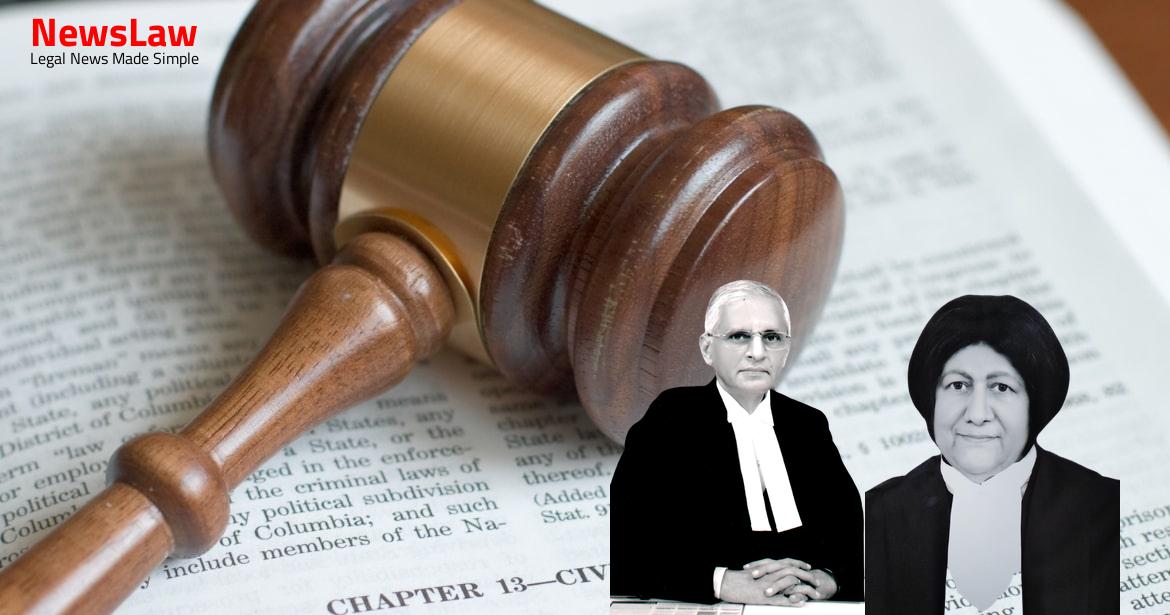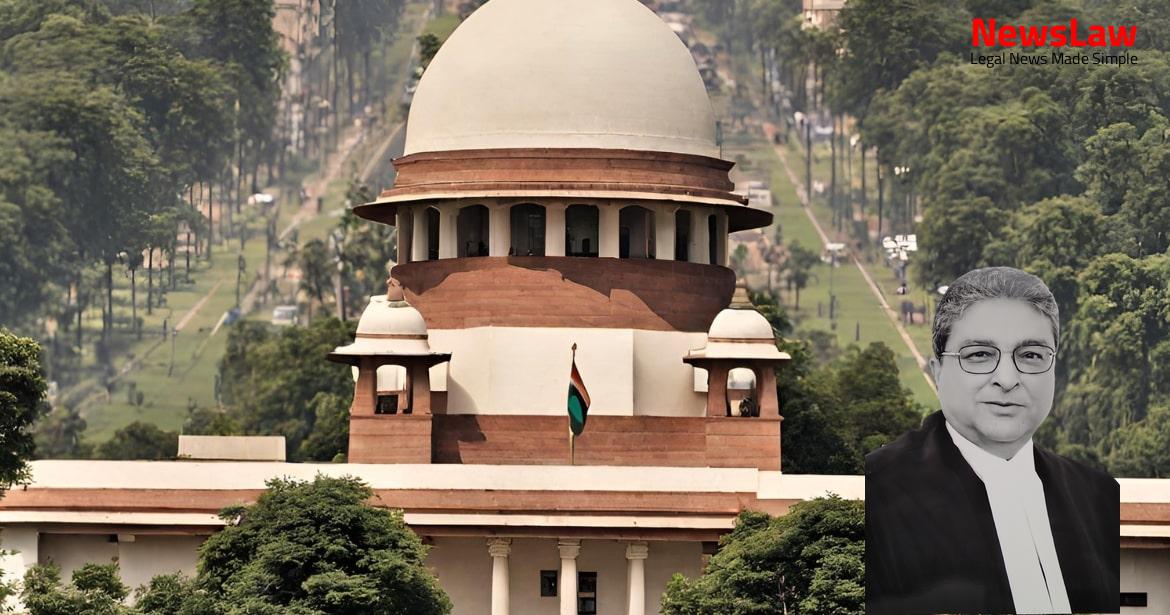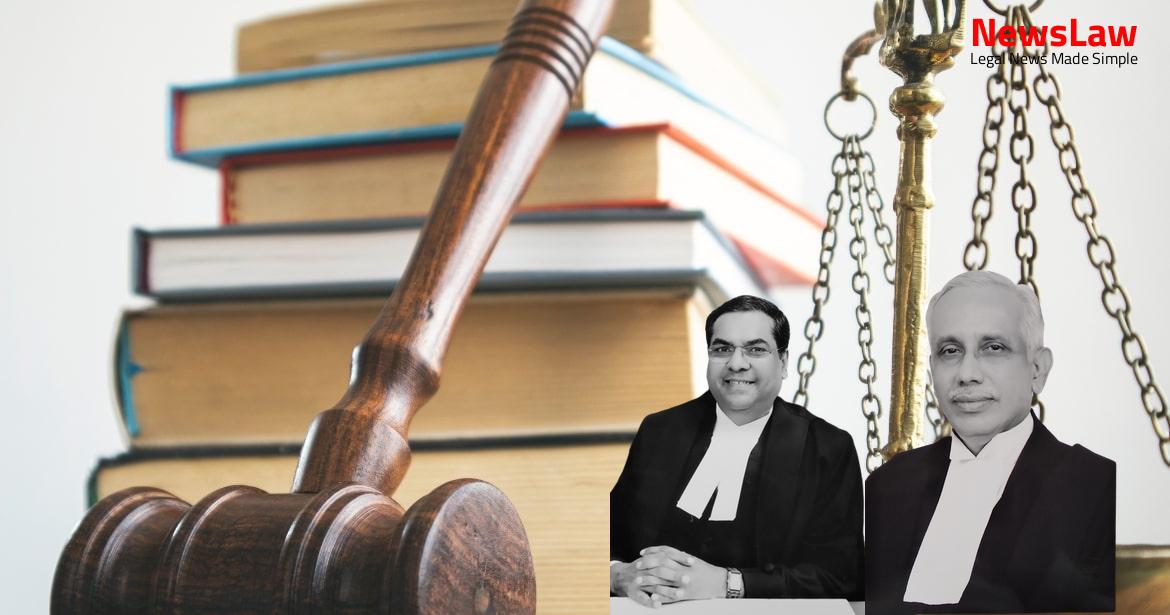Explore the intricate legal analysis conducted by the Appellate Court in a recent arbitration case. The Court’s examination delved into the nuances of jurisdiction based on the ‘seat’ and ‘venue’ of arbitration, while also delving into the implications of Section 42 of the A&C Act. This summary provides a detailed insight into the Court’s interpretation and application of key legal principles in the realm of arbitration law.
Facts
- The Appellant agreed to the fees of the Arbitrator appointed by the High Court.
- The Appellant did not willingly submit to arbitration by the learned Arbitrator.
- The Appellant did not accept the termination of the Development Agreement.
- The Appellant did not accept the order of the Calcutta High Court.
- The Appellant filed a review application objecting to the jurisdiction of the High Court, which was rejected.
- The Appellant appeared in the arbitration proceedings after the High Court appointed the Arbitrator.
- The Arbitrator passed an interim order restraining the Appellant from creating any third party interest in the property.
- The disputes covered by the reference related to an immovable construction in Muzaffarpur, to which the Appellant acquiesced.
- An appeal was made to the Bihar Building Municipal Tribunal by the Respondent.
- The order dated 13 August 2021 by the Calcutta High Court appointed an Arbitrator, while the order dated 4 October 2021 rejected the Appellant’s review application.
- The Calcutta High Court allowed the Arbitration Petition.
- A retired judge of the Calcutta High Court was appointed as the Sole Arbitrator.
Also Read: Court’s Jurisdiction in Re-appraising Arbitrator’s Findings
Issue
- The issue before the Court is whether the Calcutta High Court had jurisdiction to entertain the application filed by the Respondent and appoint an Arbitrator.
- It is in question whether the Calcutta High Court had territorial jurisdiction to pass the impugned orders.
Also Read: Contrary Directions in Issuance of Letter of Intent
Arguments
- Respondent argued that Calcutta High Court had territorial jurisdiction to entertain the application under Section 11(6) of the A&C Act as the seat of arbitration was Kolkata.
- Appellant filed an Affidavit in Opposition questioning the territorial jurisdiction of the Calcutta High Court.
- Appellant contended that there was no valid or enforceable existing arbitration clause between the parties for reference of disputes to arbitration.
- The agreement between the Petitioner and Respondent was executed and registered in the office of the District Registrar, Muzaffarpur, Bihar, outside the jurisdiction of the Calcutta High Court.
- No part of the cause of action for filing the present application had arisen within the jurisdiction of the Calcutta High Court.
- Counsel appearing on behalf of the Appellant in the Calcutta High Court gave consent without instructions from the Appellant.
- Mr. Sinha emphasized Section 42 of the A&C Act to argue against the jurisdiction of the Calcutta High Court.
- An order without jurisdiction can be questioned at any time at any stage irrespective of any consent given by Counsel.
Also Read: Application for Stay in Civil Suit Rejected: Court’s Legal Analysis
Analysis
- The courts of the seat designated in an agreement have exclusive jurisdiction over arbitral proceedings.
- Designation of a place of arbitration in the arbitration clause as ‘venue’ does not confer jurisdiction.
- The High Court lacked jurisdiction to entertain the petitioner as the suit pertained to immovable property outside the Calcutta High Court’s jurisdiction.
- Section 42 of the A&C Act is applicable and mandatory.
- Consent by counsel cannot cure a defect of jurisdiction.
- An application under Section 11(6) must be made in a High Court, regardless of other jurisdictional considerations.
- The ‘venue’ mentioned in an arbitration agreement may be the ‘seat’ of the arbitration proceedings.
- The Calcutta High Court did not adjudicate the issue of territorial jurisdiction raised by the Appellant.
- Parties can agree to refer all disputes to a specific Court, excluding others with jurisdiction.
- The intention of the parties regarding the ‘seat’ of arbitration should be determined from clauses in the agreement and the conduct of the parties.
- The Development Agreement stated that the Arbitral Tribunal sittings would be in Kolkata, but Kolkata was not agreed upon as the seat of arbitration.
- A decree passed by a court without jurisdiction is considered null and can be challenged at any stage.
- The distinction between ‘seat of arbitration’ and ‘venue of arbitration’ is significant, as the seat determines the applicable law and judicial review over the arbitration award.
- The judgment in Enercon (India) Ltd. v. Enercon GmbH emphasized that the seat normally carries the choice of that country’s arbitration law.
- The seat of arbitration in India would make Part I of the 1996 Act applicable.
- The situs of arbitration determines the courts with supervisory power over the proceedings, not just where hearings are held.
- Designating a seat of arbitration acts as an exclusive jurisdiction clause, giving jurisdiction to courts where the seat is located.
- A judgment is a precedent for the issue of law decided in the specific context of the case.
- The definition of ‘Court’ in Section 2(1)(e) of the A&C Act clarifies the jurisdiction of courts in different types of arbitration.
- Judgments should not be interpreted like statutes.
- Suits for recovery of immovable property or determination of any right or interest must be filed in the Court within the local limits of where the property is situated.
- Certain specific suits related to immovable property can be filed in the Court where the property is located or where the Defendant resides or carries on business.
- All other suits should be filed in a Court where the Defendant voluntarily resides or carries on business.
- Section 11(6) of the A&C Act must be read in conjunction with Section 2(1)(e) and interpreted to refer to a High Court with supervisory jurisdiction over a Court.
- The intention behind Section 11(6) was not to allow arbitration proceedings to be initiated in any High Court in India to unfairly disadvantage the opponent.
- The jurisdiction over arbitral proceedings lies with the Court where an application under this Part has been made, as per Section 29 of the Act.
- Section 42 of the A&C Act was relied upon by Mr. Sinha in the case before the Constitution Bench.
- The provision pertains to jurisdiction in the context of arbitration.
- The Constitution Bench considered the implications of Section 42 in the matter under review.
- The question of whether Part I of the A&C Act applied to arbitrations outside India was central to the deliberations.
- Section 42 was part of the legal framework analyzed by the Bench to determine the jurisdiction aspects of the case.
- The appointment of the Arbitrator is set aside as the order of appointment was without jurisdiction.
- The Respondent is estopped from arguing exclusive jurisdiction of the Calcutta High Court as the District Court at Muzaffarpur was invoked.
- Calcutta High Court inherently lacks jurisdiction for the application under Section 11(6) of the Arbitration Act.
- The High Court should have decided the objection to its jurisdiction before appointing an Arbitrator.
- The appeals are allowed, and the impugned orders of appointment of Arbitrator are set aside.
- Parties cannot confer jurisdiction on a Court that inherently lacked it.
- The Respondent approached the District Court at Muzaffarpur for interim protection, not a Court in Kolkata.
- Kolkata was not intended to be the seat of arbitration as per the parties’ intention.
Decision
- Application filed under Section 11(6)(a) of the Arbitration and Conciliation Act, 1996 for appointment of arbitrator
- Validity of arbitration clause in the development agreement not disputed
- Parties consented to the appointment of Justice Bhaskar Bhattacharya as Sole Arbitrator
- Impugned orders of appointment of Arbitrator and dismissal of review application set aside
- No aspersion on the previously appointed arbitrator or his manner of conducting proceedings
- Justice Bhaskar Bhattacharya appointed as arbitrator for holding meetings in Kolkata
Case Title: M/S RAVI RANJAN DEVELOPERS PVT. LTD. Vs. ADITYA KUMAR CHATTERJEE (2022 INSC 1299)
Case Number: C.A. No.-002394-002395 / 2022



